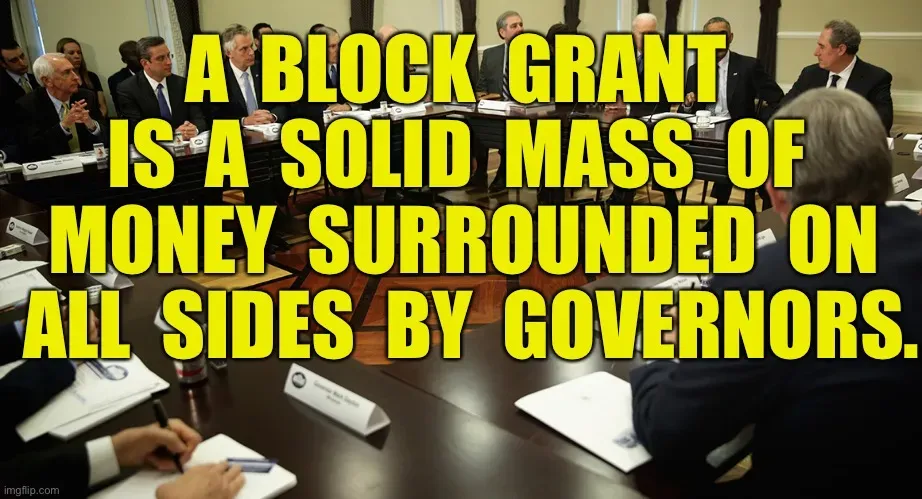The “Surrounded politics meme” has rapidly transformed the way we engage with political discourse in the digital age. Featured in Jubilee Media’s hit series, the meme has become iconic, especially in the controversial episode featuring the left-leaning Mehdi Hasan debating self-identified far-right conservatives. Viewers were taken aback by the extreme rhetoric shared during this contentious exchange, raising questions about the influence of media sensationalism on public perception. As Hasan challenged these perspectives, many were left contemplating the ramifications of elevating such viewpoints to mainstream discussions. This unique intersection of format and contentious viewpoints not only highlights the current state of political debate but also serves as a case study in how media shapes our understanding of ideology and extremism.
In the realm of contemporary digital engagement, the phenomenon surrounding the “Surrounded” series offers an intriguing lens through which to examine the dynamics of political conversation. Often characterized by polarizing opinions, this format showcases debates that pit contrasting ideologies against one another, exemplified by Mehdi Hasan’s recent confrontation with far-right voices. Such scenarios not only capture audience attention but also invoke critical analysis of the frameworks that govern political representation in media. Critics argue that these confrontational exchanges blur the lines between productive dialogue and sensational representation, raising significant concerns about the future of public discourse. Consequently, the interplay between extreme perspectives and mainstream platforms marks a pivotal moment in how we perceive and discuss political issues.
The Influence of the Surrounded Politics Meme
The ‘Surrounded’ meme has become a viral representation of how political discourse is increasingly consumed in the current media landscape. Jubilee Media’s format allows for intense, often sensational debates, encapsulating the clash of ideologies within short, digestible clips that make their rounds on social media. This trend highlights the intersection of entertainment and politics, where key points of contention can be memeified and stripped to their essence, often missing the nuance that deeper discussions may provide.
As the meme gains traction, it reflects not just the views of its participants but also the audience’s appetite for dramatic confrontations. The ‘Surrounded’ episode featuring Mehdi Hasan against a backdrop of far-right conservatives has contributed to the phenomenon, wherein viewers engage not only with the arguments presented but also with the exaggerated persona each side takes on within the confines of the debate. Such representations can polarize audiences further, reinforcing existing biases rather than fostering meaningful dialogue.
Debating Mehdi Hasan: A Case Study in Political Discourse
Mehdi Hasan’s approach to engaging with far-right conservatives during the Jubilee Media debate has been met with mixed reactions. On one hand, his attempts to confront controversial opinions head-on contribute to a necessary dialogue surrounding authoritarian views that threaten democratic values. On the other hand, the sensational nature of the format is criticized for possibly undermining the very seriousness of the subjects at hand. When discussions pivot toward memes and viral content, the focus can shift from the implications of the debate to its entertainment value.
Critics argue that while Hasan aims to challenge and discredit extreme opinions, the platform itself may inadvertently legitimimize those viewpoints by placing them center stage in a high-profile format. This echoes broader concerns about media sensationalism, where the quest for views and engagement can lead to a prioritization of extreme rhetoric over substantive exchanges that prioritize informed discussion. The case study of Hasan’s debates serves as a crucial reminder of the complexities surrounding contemporary political discourse.
The Role of Media Sensationalism in Political Engagement
Media sensationalism plays a pivotal role in shaping public perception, particularly in politically charged environments. The format used in episodes like Jubilee Media’s ‘Surrounded’ inevitably prioritizes dramatic encounters that attract views and generate discussions. While sensationalism can spark interest and draw in audiences who might otherwise disengage from political narratives, it often leads to superficial understandings of complex issues. The challenge lies in balancing the desire for engagement with the responsibility to educate and inform.
Moreover, critics of this format argue that sensationalism can serve to entrench ideological divides rather than bridge gaps in understanding. In the context of debates featuring figures like Mehdi Hasan and far-right commentators, the emphasis on viral moments risks overshadowing the deeper discussions necessary for any real change. As political engagement increasingly happens through the lens of meme culture, we must critically assess what is sacrificed on the altar of instant gratification and entertainment.
The Polarizing Effects of Virtual Debates
Virtual debates, characterized by platforms like Jubilee Media’s ‘Surrounded’, have revolutionized the way political discussions are presented and perceived. By attracting diverse participants and providing a stage for extreme viewpoints, these platforms can engage audiences who might not engage in traditional media environments. However, this accessibility also comes with caveats, primarily the polarizing effects it can produce. Those who partake often find themselves entrenched in their viewpoints, using these platforms more for reinforcement of existing beliefs rather than for genuine exploration of opposing viewpoints.
Furthermore, with participants like Mehdi Hasan confronting far-right conservatives, the dynamic shifts further into spectacle territory. While such confrontations can challenge prevailing assumptions, they may also solidify divisions among audiences who watch with preformed biases. The comments, shares, and memes that follow these debates often reflect the extremes, diluting the chance for nuanced discussions and reinforcing echo chambers. This speaks to a larger trend in political discourse that requires careful navigation in our digital age.
Constructive Engagement vs. Viral Sensationalism
The clash between constructive engagement and viral sensationalism is particularly pronounced in platforms like Jubilee Media’s ‘Surrounded’, where debates unfold not just for the sake of dialogue but also for the thrill of entertainment. Mehdi Hasan’s methodology of engaging with far-right voices exemplifies this tension effectively. On one hand, these interactions aim to challenge extremist narratives; on the other hand, they can become vehicles for sensationalism that distract from the intended critical discourse.
This duality raises vital questions about the responsibility of media producers to curate content that emphasizes constructive engagement over mere virality. If debates devolve into soundbites tailored for maximum social media impact, the risk of trivializing serious issues increases. Critics claim that instead of fostering genuine understanding, such approaches encourage divisiveness, where the applause of one faction outweighs the need for balanced dialogue. Addressing this issue requires a concerted effort from content creators to prioritize moral integrity over sensational appeal.
The Impact of Viewer Engagement on Political Narratives
Viewer engagement has become a powerful metric that influences how political narratives are shaped in media. In the case of the ‘Surrounded’ episode featuring Mehdi Hasan, the influx of views and reactions illustrates how audience interactions dictate the prominence of specific topics in public discourse. High engagement levels often serve to validate the ideas presented, regardless of their merit, potentially shifting the focus from informed dialogue to reactionary responses that favor sensational narratives.
Moreover, the comments and shares derived from these political debates further entrench viewer biases. As audiences gravitate towards content that resonates with their beliefs, the algorithmic amplification of such narratives plays into the hands of those wishing to normalize fringe views. This suggests that while platforms like ‘Surrounded’ provide a space for diverse opinions, the resultant political narratives are not solely formed by the debates themselves but are co-created by the audience’s responses, reinforcing a cycle of polarization.
Navigating Authoritarian Perspectives in Modern Media
The normalization of authoritarian perspectives in modern media is a significant concern in the context of platforms like Jubilee Media’s ‘Surrounded’. Mehdi Hasan’s confrontations with far-right conservatives expose an unsettling reality: the tolerance of extreme views can lead to their legitimization in public discourse. The facility with which controversial ideas can gain traction underscores the importance of critical media literacy among audiences, enabling them to discern between healthy debate and dangerous ideology.
As public figures and platforms grapple with the implications of promoting rigorous dialogue, there is a pressing need for frameworks that guide such discussions away from sensationalism and toward ethical integrity. Engaging with complex issues in a way that acknowledges their sensitivity is essential in fostering a discourse that does not inadvertently glorify authoritarian ideologies. The balance between open engagement and responsible representation must be prioritized to safeguard democratic values.
The Sensationalization of Political Ideologies
The sensationalization of political ideologies has become a hallmark of contemporary media landscapes, particularly in debate formats such as Jubilee Media’s ‘Surrounded’. This episode featuring Mehdi Hasan amplifies the tendency to focus on conflict rather than constructive dialogue—where the loudest voices often dominate, and nuance takes a backseat. This development raises important questions about the portrayal of political ideologies and the role of media producers in shaping such narratives.
While controversial figures may be given airtime under the guise of fostering debate, the resulting discussions often devolve into caricatures of the participants’ beliefs. This undermines the potential for nuanced understanding and places emphasis on entertainment value, which can distract from the need for serious engagement with political ideologies. As such representations spread through memes and social media, they risk creating simplified versions of complex ideologies that do not reflect the realities of political discourse.
How Social Media Distorts Political Debate
Social media fundamentally alters the landscape of political debate, transforming nuanced discussions into quick soundbites that favor sensationalism. Episodes like Jubilee Media’s ‘Surrounded’, where Mehdi Hasan confronts far-right conservatives, provide a case study in how online platforms prioritize viewer engagement through sensational moments at the expense of genuine discourse. This leads audiences to react based on emotionally charged highlights rather than informed understanding of the issues being debated.
The distortion of political debate by social media algorithms creates a feedback loop, where sensational content is favored, and more moderate discussions are overshadowed. The rise of the ‘Surrounded’ meme is indicative of this, where key moments from debates are taken out of context and circulated in ways that can misrepresent the larger conversation. As viewers engage with these snippets, they often reinforce preexisting biases, leading to further polarization and a diminished capacity for civil discourse.
Frequently Asked Questions
What is the significance of the Surrounded politics meme in contemporary debates?
The Surrounded politics meme highlights how political discourse can be sensationalized through media formats like Jubilee Media’s *Surrounded*. By framing debates around extreme viewpoints, it often reduces complex political discussions to viral soundbites, impacting public perception and engagement.
How did the Mehdi Hasan debate in Surrounded reflect modern political divisions?
The Mehdi Hasan debate during the Surrounded episode showcased significant political divisions, particularly between his progressive views and those of the far-right conservatives. This clash not only illustrates the polarized nature of today’s political landscape but also emphasizes how sensational media formats can amplify such divides.
What criticisms have been leveled against Jubilee Media’s Surrounded format?
Critics argue that Jubilee Media’s Surrounded prioritizes media sensationalism over genuine dialogue, as it elevates extreme opinions to garner views. This approach can normalize authoritarian perspectives and lead to a decline in constructive political discourse, as noted by observers like Julia Alexander.
How does the Surrounded meme influence public perceptions of far-right ideologies?
The Surrounded meme influences public perceptions by framing far-right ideologies in a manner that may seem entertaining or outrageous. However, this can inadvertently legitimize extreme viewpoints by giving them a platform, challenging viewers to critically assess the implications of such sensationalized representations.
What are the effects of political discourse in media formats like Surrounded?
Media formats like Surrounded can both enrich and complicate political discourse. While they can engage audiences by presenting diverse viewpoints, they may also perpetuate division and sensationalism, which undermines meaningful conversation and leads to meme-like interpretations of serious political issues.
| Key Point | Details |
|---|---|
| Participants and Context | The episode features a debate between Mehdi Hasan and 20 far-right conservatives. |
| Mehdi Hasan’s Role | Hasan, known for confrontational interviews, expresses shock at extreme views shared. |
| Critique of Platform | Hasan critiques Jubilee’s decision to promote extreme views, raising concerns about normalization of authoritarian perspectives. |
| Public and Media Reaction | The episode has garnered mixed reactions, with both jubilation and criticism regarding its impact on discourse. |
| Sensationalism vs. Constructive Dialogue | Critics argue the format favors sensationalism over meaningful political dialogue, raising questions about the program’s integrity. |
Summary
The ‘Surrounded politics meme’ illustrates the complex interaction between media and the polarized political landscape. By elevating extreme political views for viral consumption, the episode featuring Mehdi Hasan and far-right conservatives raises critical questions about the nature of constructive political discourse. While aims for understanding prevail, the sensationalist approach risks undermining meaningful dialogue, making it essential to consider the implications of such media representations.



